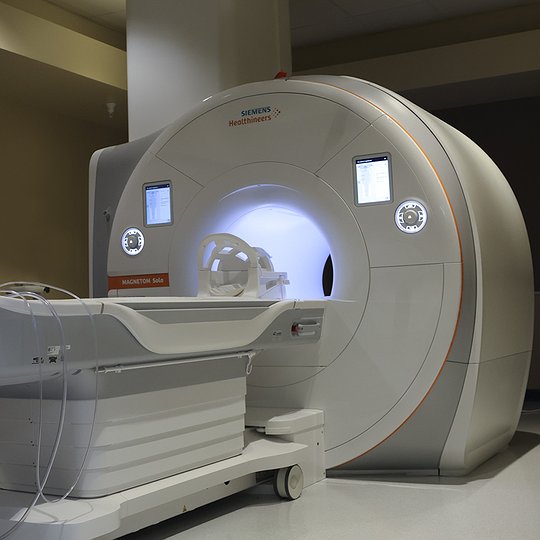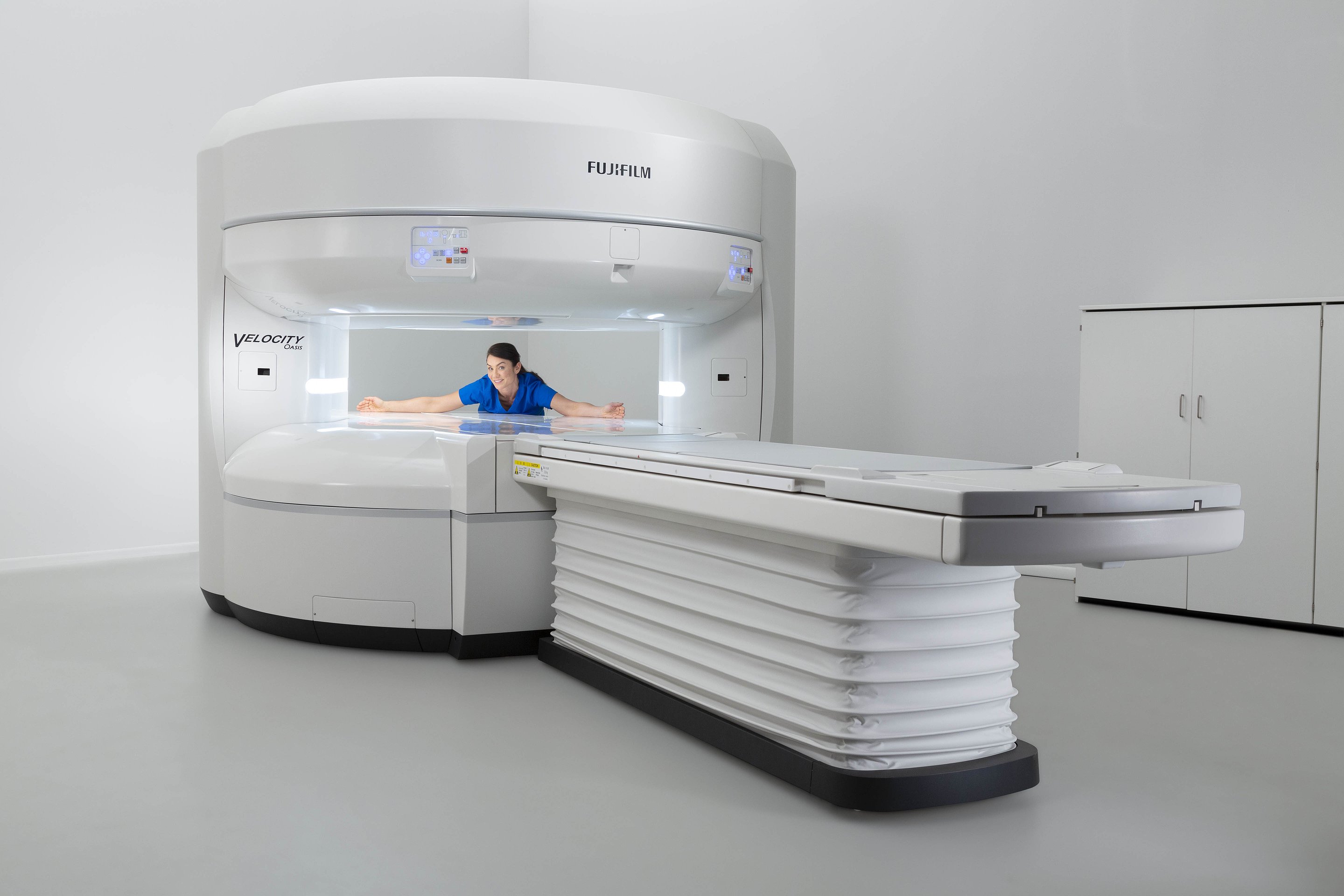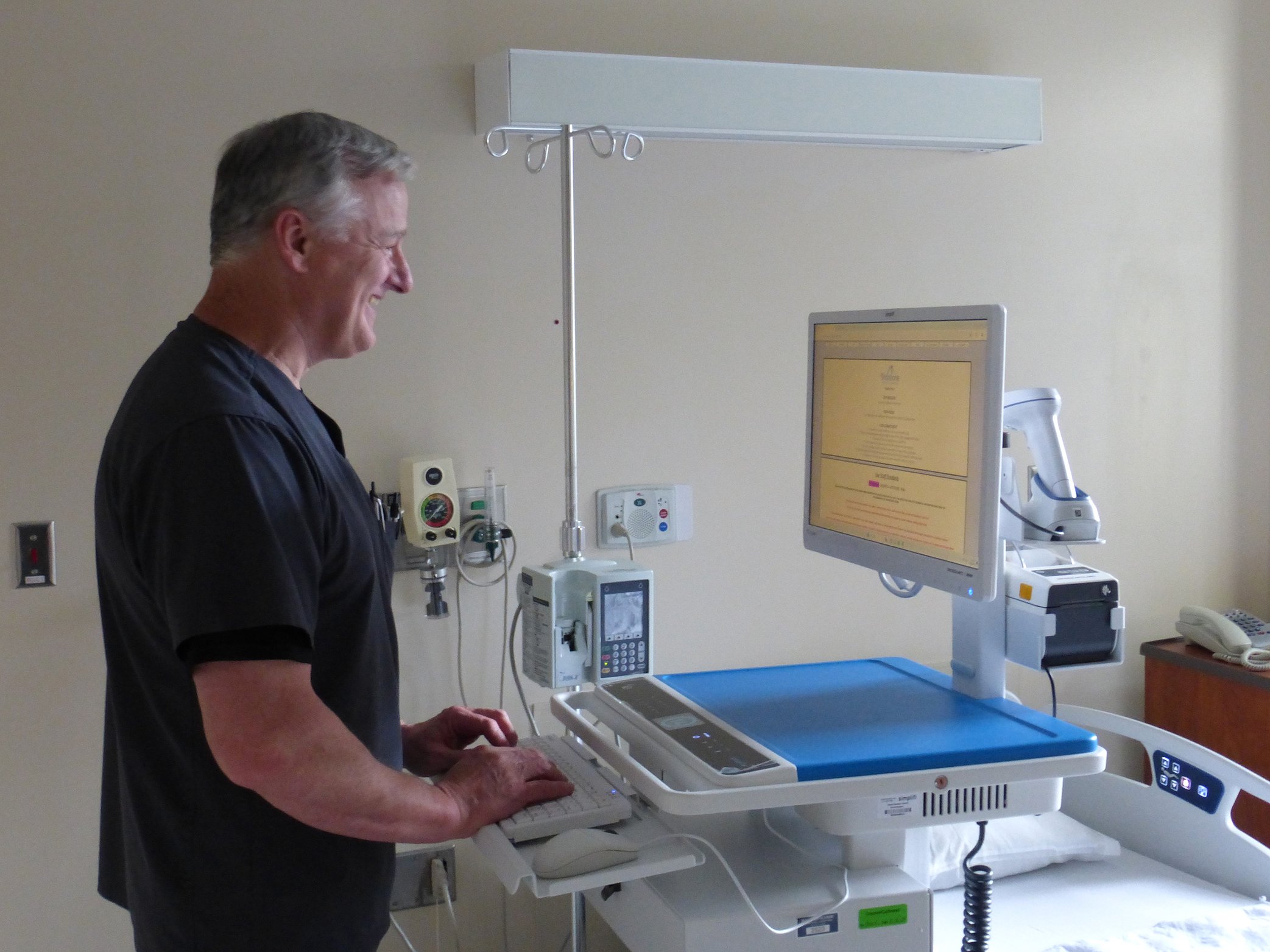Hospitals bolster experience with new tech

Performance Therapy Services at Bonner General Health is the first rehabilitation facility in Idaho to acquire an EksoNR robotic exoskeleton. The exoskeleton helps patients regain their ability to walk and is the first of its kind approved by the FDA for treating acquired brain injuries, stroke, multiple sclerosis and spinal cord injuries.
North Idaho hospitals are integrating new technologies into patient care to reduce times for MRI scans, rehabilitation and even relearning how to walk. Four hospitals in three counties responded with ways new technology is affecting patient care.
Bonner General Health taps into tech
Performance Therapy Services at Bonner General Health is the first rehabilitation facility in Idaho to acquire an EksoNR robotic exoskeleton. The exoskeleton helps patients regain their ability to walk and is the first of its kind approved by the FDA for treating acquired brain injuries, stroke, multiple sclerosis and spinal cord injuries.
EksoNR supports patients in relearning how to walk by guiding their movements and helping retrain their brain and muscles.
Bonner General has added the RT300 recumbent bike to their rehabilitation services. The bike combines functional electrical stimulation with repetitive resistance exercises to achieve therapeutic and health benefits for a range of neurological conditions.
The RT300 helps patients recover from various ailments by preventing muscle atrophy, reducing muscle spasms, enhancing local circulation, maintaining or improving range of motion and aiding in muscle re-education.
AIR™ Recon DL uses deep learning algorithms to speed up MRI scans and produce higher-quality images. This imaging software fuses the latest in artificial intelligence to create incredibly clear and detailed images of the body while speeding up the scanning process.
Kootenai Health
Tim Swartz, executive director of ancillary services at Kootenai Health noted some new advances on the horizon for the health care system.
Blood bank and new analyzers for the blood reserve are among the new technology being added to the organization in the near future.
Swartz said that managing blood donations are always a challenge in the community, but the addition of new blood reserve tech will allow Kootenai Health to be "better stewards" of the blood supply.
"Sometimes you’re trying to figure out exactly what the patient needs. The new analyzers are going to allow providers to get the results and decide when and where to intervene," Swartz said.
Swartz primarily manages the imaging and lab teams at Kootenai Health and said the addition of the MAGNETOM Sola has been a game-changer for the hospital.
The MRI has BioMatrix Technology to automatically overcome unwarranted variation in patient scans.
"It has higher resolution for scans and reduces the time to scan a patient," Swartz said.
Another new device being added to Kootenai Health is the Skyra 3T MRI, which has a stronger magnetic field to give better clarity to the image and detail of the scan.
A Trinium MRI Siemens will turn Kootenai Health into the cutting edge of pioneering technology.
"The technology just came out and we're the only one in North Idaho," Swartz said.
The facility using the Trinium will turn Kootenai Health into a show site for the Siemens Company to show the machine in practice within the industry.
"It's a pretty amazing machine," Swartz said.
The new equipment will allow staff to cut the time for patients to be scanned by more than half.
"It increases our capacity, so we'll be able to see a higher volume of patients and have better access," Swartz said.
Caiti Bobbitt, public affairs specialist for Kootenai Health said that whether it's a scan of an ankle injury or more data revealing a breast cancer scare, "We can get you results sooner and get you that piece of mind."
Northwest Specialty Hospital
In an effort to save health care provider time and extra energy, Northwest Specialty Hsopital has begun using DAX Copilot, an AI‑powered voice‑enabled solution that automatically transcribes patient information immediately after the patient visit.
With this new program NSH hopes to reduce clinician time spent writing up appointment notes so providers can focus on the patient in the room, not the computer.
Northwest Specialty Hospital also has a new Oasis Velocity Open MRI to help people that are claustrophobic and struggle with the standard tube-shaped MRI.
At the Axis Spine Center, a division of Northwest Specialty Hospital, Dr. Kent, Dr. Glassman, and Dr. Jameson are involved in several research studies using new technology.
Jameson is focusing on using spinal cord stimulators for complex pain relief.
Spinal cord stimulators are permanently implanted devices that are controlled by the patient via remote or even their cell phone that provide stimulation to the spinal cord to relieve pain.
Peripheral nerve stimulation devices are also being used to target low back pain, shoulder pain, neck pain, post amputation pain and chronic post operative pain. The Axis Spine Center through Northwest Specialty Hospital is currently in the follow-up phases of research with this device, but it is also used as standard of care.
Kent and Glassman have been running current research utilizing disk replacement devices for two levels rather than one.
The artificial disc replacement is treating degenerative cervical disc radiculopathy targeting two adjacent levels. The primary objective is to evaluate the safety and effectiveness of the use of this device for two levels since the FDA has already approved it for the use in one level.
The results are being compared with patients who have standard fusions of the cervical spine vs the artificial disc replacements.
Shoshone Medical Center
Both Kootenai Health and Shoshone Medical Center have both updated their medical records systems in the last year. Kootenai Health has been using the EPIC records system since 2023 and SMC went to a multimillion-dollar system through Oracle Health CommunityWorks this summer after 20 years using the old system.
SMC’s CEO, Paul Lewis, said the system now serves as a bridge to increase information-sharing across departments so a fuller picture of a patient’s medical health is charted.
“We had about five standalone systems that we had grouped together, clinic records, ER records, inpatient records and so on, and all of these were separate. They didn’t communicate,” Lewis explained.
The new medical system at SMC synchronizes between departments on one platform and will be used by the hospital for at least the next nine years.
A specialized telecardiology program between Shoshone Medical Center and the Northwest Hospital Alliance is also currently in the works.
SMC radiology manager Casey Winchel said the new MRI, a Canon Orion machine, uses A.I. noise reduction software to shorten scan times. The MRI machine and the construction involved to accommodate it into the hospital cost about $1 million.
Lighting is built into the equipment and image quality is better with the ability to play the patient’s music. The scanning surface is padded for more comfort and can also accommodate larger patients.













